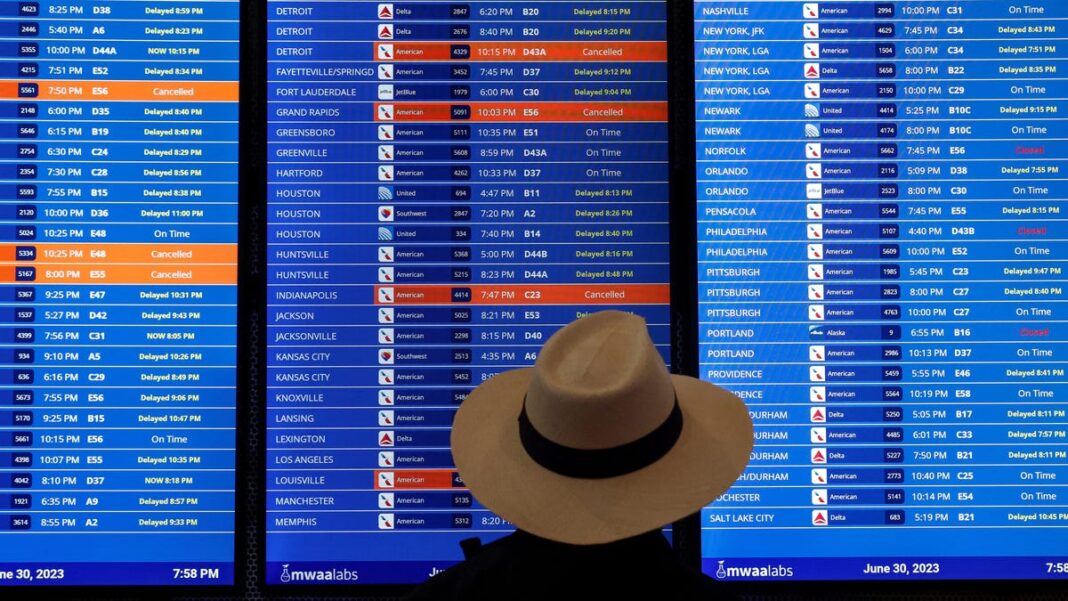Should I Get Travel Insurance? Protect Your Next Flight or Cruise
Experienced travelers understand that surprises are part of the journey. Flight cancellations, sudden illnesses, and other issues can disrupt travel plans for countless reasons.
One way to protect yourself from financial loss when things don’t go as expected is to invest in travel insurance.
As the name suggests, travel insurance covers the money you spend on your trip, including your flight and hotel costs. Since travel can be expensive, it’s wise to ensure you won’t lose your investment.
“Travel insurance can help you recover costs for unexpected situations and inconveniences such as being delayed on the runway, trip delays, medical emergencies, lost luggage, and more,” explains Christina Tunnah, general manager of global marketing and brands at World Nomads. “While it won’t stop stressful events from occurring, it can lessen the financial and logistical impact.”
About 38% of travelers opt to buy travel insurance, according to a December 2023 survey by INSIDER and Momentive AI Audience. Many do so because they worry about flight delays or changes to reservations. But this is just a glimpse of the benefits travel insurance can offer during your travels.
Here’s some essential information about travel insurance.
Is Travel Insurance Necessary?
“I’d recommend considering travel insurance for any trip,” advises Stan Sandberg, co-founder of TravelInsurance.com, a site dedicated to comparing travel insurance options. “The key question is whether losing the money for your trip at the last minute due to illness or any unforeseen circumstances would be devastating?”
Travel insurance aims to shield you and your travel investments from unexpected occurrences such as health emergencies, lost luggage, or flight delays. “You can think of travel insurance as covering three primary areas: your travel investment, your health, and your belongings,” Tunnah says.
Standard comprehensive travel insurance typically includes two components: pre-departure and post-departure coverage. Pre-departure includes events such as weather issues (before a storm is formally announced) or illness that forces you to cancel before the trip begins. Post-departure coverage includes incidents that occur during your trip, like your luggage being stolen or needing medical treatment.
“Most travelers find the standard coverage to be adequate for their needs,” Sandberg states. However, those with pre-existing conditions or planning to take part in risky activities like scuba diving or hiking in remote terrain might consider additional options for greater protection.
What’s Excluded from Travel Insurance?
Travel insurance does not cover all possible incidents during your trip, so it’s essential to read your policy thoroughly or consult the customer service team of your insurance provider for clarity.
“Exclusions can include pre-existing conditions, certain adventure sports, and injuries while under the influence of drugs,” Tunnah advises. “Policies may also have limits on reimbursements for lost luggage, medical costs, emergency evacuation, and more.” For example, some plans will only reimburse for flight delays exceeding a specific duration.
Can I Cancel My Trip for Any Reason Using Travel Insurance?
No, not unless you specifically choose to pay for that option. Simply having travel insurance does not guarantee a refund if you decide you can’t go for personal reasons. However, you can purchase an add-on known as “cancel for any reason,” which allows you to cancel up to two days before your departure and still receive 50% or 75% reimbursement of your nonrefundable expenses.
Do I Need Travel Insurance If I Have a Pre-existing Medical Condition?
If you have a medical condition that existed prior to your trip, such as asthma or pregnancy, you need to take specific steps and act quickly, recommends Beth Godlin, president of Aon Affinity Travel Practice.
“First and foremost, review how pre-existing conditions are defined in your policy,” she advises. This will clarify how long you have to file for a pre-existing condition waiver and what the lookback period is—the timeframe in which the insurance company considers a condition stable.
If you’re unsure, it’s best to call the provider. “If you have specific concerns, reach out to the insurer directly,” Godlin adds.
Is Travel Insurance Required for Japan or Europe?
Travel insurance is particularly beneficial for those who are going abroad. It can cover a range of situations, from minor doctor visits to significant events like medical evacuations. “Even top-tier health insurance in the U.S. may not provide adequate coverage when you travel internationally or outside your local medical area, and it might be very limited,” Sandberg explained.
Is travel insurance necessary for a cruise?
If you’re planning a cruise, having travel insurance can be very useful, so take the time to compare different options available. While cruise lines usually provide their own insurance, these plans often come with numerous restrictions, so it’s important to carefully review the details.
“When considering travel insurance for cruises, certain benefits might be more crucial than others,” Tunnah noted. “Since your travel doesn’t involve frequent flights to different locations, baggage delays might not be a significant concern. However, what happens if a planned stop is omitted due to inclement weather? Some policies may address this issue.”
Moreover, your standard health insurance likely does not extend to treatments at the cruise ship’s medical facility or at ports, which means you might have to cover those costs yourself.

